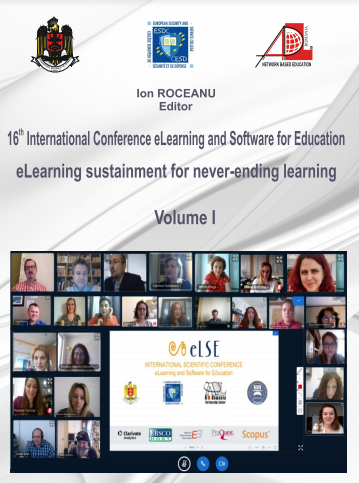DIGITAL METHODS vs EXPERIENTIAL METHODS. DIDACTIC APPLICATIONS
DIGITAL METHODS vs EXPERIENTIAL METHODS. DIDACTIC APPLICATIONS
Author(s): Mihaela StanciuSubject(s): School education, Methodology and research technology, ICT Information and Communications Technologies, Distance learning / e-learning, Pedagogy
Published by: Carol I National Defence University Publishing House
Keywords: clicker answer system Mentimeter; constructivist learning situations; digital methods; experiential learning;
Summary/Abstract: The study below is a component of didactic research that aims to adapt the teaching methods and tools used in the Romanian Language and Literature lesson to software applications in the education field. As it was an optional subject for the high-school students, during a semester I studied, the transition from experiential learning methods inspired by the art of theatre to the digital ones such as the clicker response system, using the Mentimeter app. The purpose of the research was to observe the students' level of involvement in the lesson. I was able to monitor it clearly by creating different constructivist learning situations. The subjects of this study were 10th-grade students from two distinct classes, a sample of 55 students. The mixed research methodology used in this study highlights both quantitative and qualitative methods, pursuing a balance in data collection, analysis and interpretation. The first research method was the survey, two questionnaires were analyzed, the first one aimed the students' opinion on digital methods, and the second one, the experiential methods. Another method of applied research was qualitative observation which materialized in the analysis of students' activity results. In order to interpret the collected data from the two methods there were considered the analysis of the time distribution, the level of students' participation and the type of learning tasks. After being statistically processed, the data collected led to preliminary results of the research showing a substantial involvement of the students in accomplishing tasks. Regarding the interdisciplinary strategies, where were used the dramatic methods and techniques, the students reacted well from the point of view of the new knowledge acquisition, but several hours were needed to reach the objectives. On the other hand, students reacted positively to the digital clicker response system, at the same time, an important amount of time was saved in the lesson. The comparative observation of the two examples of collaborative work showed that through the use of methodological interdisciplinarity, in particular the interaction through the dramatic game and the response system Mentimeter, based on the use of the smartphone, students can make connections with life situations and their own experience, which translates to active participation and involvement.
Journal: Conference proceedings of »eLearning and Software for Education« (eLSE)
- Issue Year: 16/2020
- Issue No: 01
- Page Range: 603-611
- Page Count: 9
- Language: English

